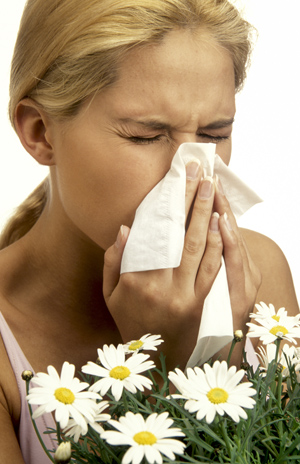
The most common food allergies are from milk and milk products, wheat and other grains, citrus, nightshades, peanuts, yeast and molds and soy and soy products.
by Dr. Mark Force —
Most people associate allergies with hay fever. These are the immediate type (IgE-mediated) allergic reactions, which can be chronic and debilitating or immediate and life-threatening (anaphylactic). The delayed (IgG-mediated) reactions, however, are more insidious.
Typical delayed allergic reactions are feeling foggy-headed, waking up tired in the morning and experiencing general fatigue, poor sleep, joint and muscle stiffness and pain, headaches, anxiety and weight gain. In fact, weight gain is so common with delayed allergic reactions that those who have trouble losing weight despite eating less, exercising more and having increased their intake of whole foods should be tested for food allergies.
The most common food allergies are from milk and milk products, wheat and other grains, citrus, nightshades (tomatoes, potatoes, peppers, eggplant), peanuts, yeast and molds (in cultured foods like cheese, breads, yogurt, etc.), and soy and soy products.
Below are useful strategies that can help control allergies and the myriad reactions from them. It can be particularly effective to incorporate one or more of these practices.
Allergy control strategies
Practice avoidance — This strategy lowers your exposure to allergens and decreases the overall stress on your system to adapt.
Clean up your home — Replacing carpeting with wood, bamboo, cork, linoleum or tile significantly decreases your exposure to dust and dander. Get chemicals (cleansers, solvents, pesticides, etc.) out of the house and into the garage or get rid of them altogether.
Try a neti pot — Wash the dust, pollens and molds out of your sinuses with a neti pot. You can make an easy solution at home: Fill a 12-ounce lidded jar with water, then add one teaspoon of Celtic salt and one to two drops of tea tree oil, which is antibacterial and antifungal.
Use air purifiers — HEPA-rated air filters pull particulates, like dust and pollen, out of the air. Running a HEPA filter in your bedroom at night gives you many hours without the stress of being exposed to allergens.
Eliminate trigger foods — Determine the foods that cause allergies and avoid them. You can use a food log to record how you feel in relation to what you eat. To track allergies, look for an increase in your pulse after meals or use blood tests, but you must test for IgG reactions to be useful, or applied kinesiology (muscle testing), which has a 90 percent correlation with blood tests. Skin testing for food allergens is not accurate.
Consider desensitization — Seeing an allergist for allergy shots can be useful and lead to dramatic improvements in some people, but it is time-consuming and expensive. Homeopathy has the advantage over shots by being inexpensive, convenient and fast-acting. Bee pollen (it must be local) also can be used for desensitization. Start by thoroughly chewing a few grains and slowly work up to a teaspoon or two.
Get healthier — This improves your immune function, which allows your body to respond normally to allergens.
Improve digestion — Poor digestion leads to an incomplete breakdown of foods, especially proteins, and increases the antigen load on your system. Many food allergies are of this type and will clear up as digestion improves.
Balance intestinal tract — Restoring optimal intestinal flora by using cultured foods (yogurt, kefir, sauerkraut, borsht, kimchi, pickles, olives and whole grain sourdough breads) and probiotics helps restore immune response and controls allergies.
Restore adrenal function — This is a key aspect of controlling allergies for most people.
Balance body pH — Using pH paper to measure your body pH can guide you to key beneficial changes in your diet. For many, apple cider vinegar is very useful for balancing body pH, as well as eating more fruits and vegetables.
Hydrate with electrolytes — Most people who have allergies are chronically dehydrated, which is a large part of the cause of their allergies. Make sure to drink enough water daily.
Try detoxification and fasting — A short juice fast for three or four days can help decrease allergies. Sometimes it may take two or three of these fasts to do the trick. Drinking freshly made vegetable juice is helpful, also.
Dr. Mark Force is a chiropractic physician at The Elements of Health in north Scottsdale, Ariz. He practices functional and natural health care, and is the author of Choosing Health: Dr. Force’s Functional Selfcare Workbook. 480-563-4256 or theelementsofhealth.com.
Reprinted from AzNetNews, Volume 29, Number 3, June/July 2010.





February 26, 2012
Allergies, Cleaning, Food, Health